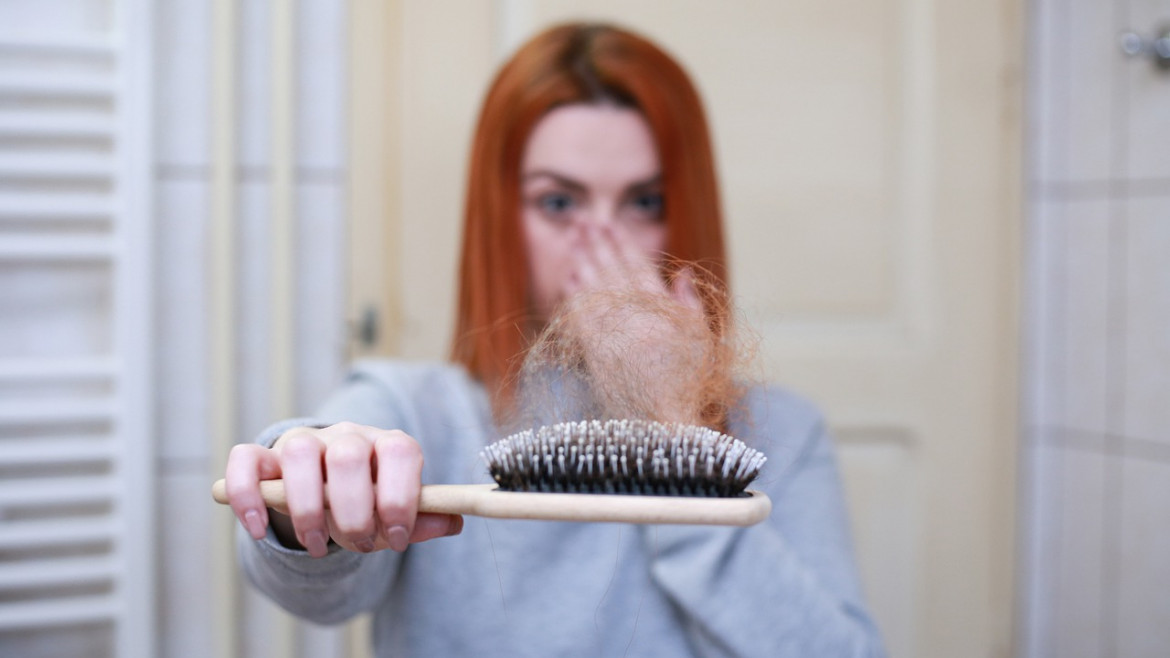I’m sure that at some point, most of us have experienced the feeling of seeing the hairbrush filled with clumps of hair. While it can be unsettling and a panic-inducing moment, seasonal hair shedding is quite normal. Many men and women are prone to it, but what we want to know is what causes the hair shedding, and what can we do about it?
What Causes Seasonal Hair Loss?
For years, researchers have suspected that there are periods during a year when people shed more hair than in the others. There’s a belief that the hair grows more thickly during the spring and starts to thin out during the summer and fall.
While there isn’t a definitive answer on why this happens, researchers speculate that this might result from human race evolution. In the summer, hair isn’t as important to keep the body warm compared to the cold winter months. That’s why people might have evolved to grow hair in times when it can be of aid in maintaining the body’s heat and fall when they need it the least.
How to Reduce Seasonal Hair Loss?
First of all, it is important to understand that it is normal to lose about 50 to 100 strands a day. Seasonal hair loss is a temporary increase in the strands that you lose. While there isn’t a definitive quick-fix solution, I can give you a few tips that can be helpful in maintaining healthy hair and reducing hair shedding.
Avoid hot showers and overwashing your hair
Washing your hair is an essential part of maintaining the health of your hair and scalp. The temperature of the water should be warm as hot water can damage your hair severely. Hot water can strip the hair and scalp from the natural oils which help to maintain healthy hair and scalp.
Adjust your diet
Nutrient deficiency has quite an impact on the health condition of your hair. That’s why you should take a minute to assess your diet. If you find that it excludes certain food groups that hair growth depends on, you should try to add them to your diet in one way or another. Certain vitamin deficiencies such as vitamin D and Biotin can contribute to hair shedding. See your dermatologist who can test for these vitamin deficiencies and treat them accordingly. It is important to have a diet that includes fresh vegetables, fruits, proteins and healthy fats. If there is a nutritional deficiency it can be helpful to take a nutritional supplement.
Air-dry your hair
It can be tempting to use blow dryers on your hair early in the morning when there’s really not that much time for anything. It is best to let your hair air dry since blow-drying can increase the chance of hair breakage. In this case, the best solution would be for you to wash your hair at night and then give the hair the chance to dry while you’re asleep. Avoiding harsh treatments such as hair straighteners or curlers at high heat, as well as dying your hair.
Treat your scalp
Just like our hair needs nourishment, so does our scalp. Choosing the right hair product can nourish and strengthen the hair follicles and create the optimal environment for healthy hair growth. If your scalp is dry it is helpful to use a shampoo that moisturizes and removes dead skin cells. Treating any underlying conditions such as dandruff or seborrheic dermatitis can be helpful. This could be as easy as using a shampoo that contains Zinc Pyrithione such as Head & Shoulder Shampoo.
Deep condition your hair once a week
Hair that is deep-conditioned frequently is softer, less likely to break or shed. With that being said, while you can’t expect it to solve your seasonal hair loss problems, it surely can nourish your hair and minimize hair breakage.
Seasonal hair loss is a common issue that many men and women deal with. If you find that your hair loss is abrupt, significant, ongoing or you see bald patches, see your Board Certified Dermatologist to further evaluate the type of hair loss you are having and provide you with the appropriate treatments.
Get regular trims
Depending on your hairstyle, hair trimming can help maintain healthy hair. With each trim, you get rid of damaged split-ends and with them gone, there are fewer chances of your hair shedding. Trimming makes your hair appear thicker and shinier. This way your hair is less likely to break.
Try to De-Stress
Stress can be a big contributor to hair shedding. In combination with the natural hair shedding that occurs seasonally this can be further magnified. In the fast-paced society we live in, stress is inevitable therefore it is important to find ways to distress which can be in a form of taking frequent breaks from what you are doing, taking deep breaths, meditating or exercising.

